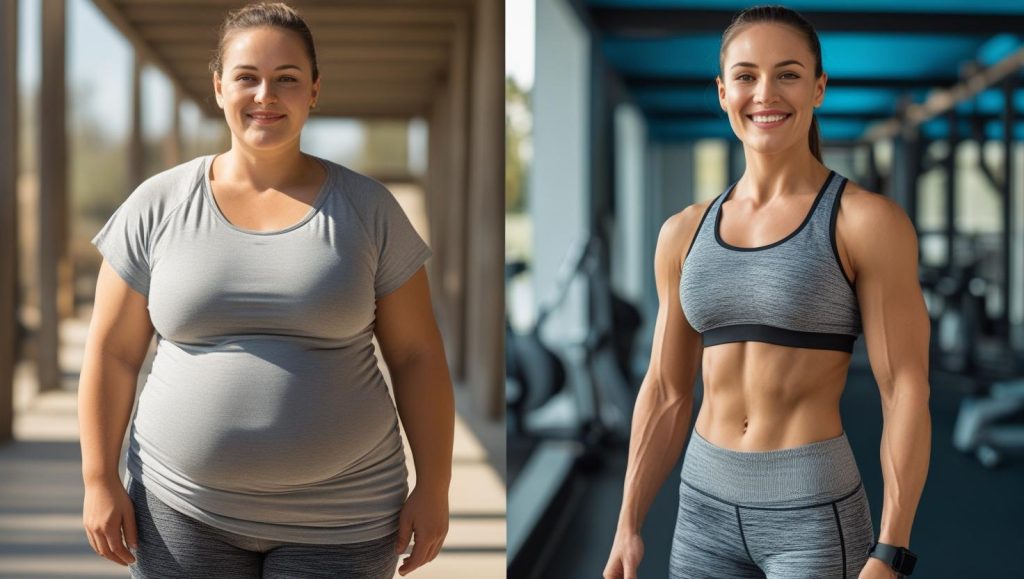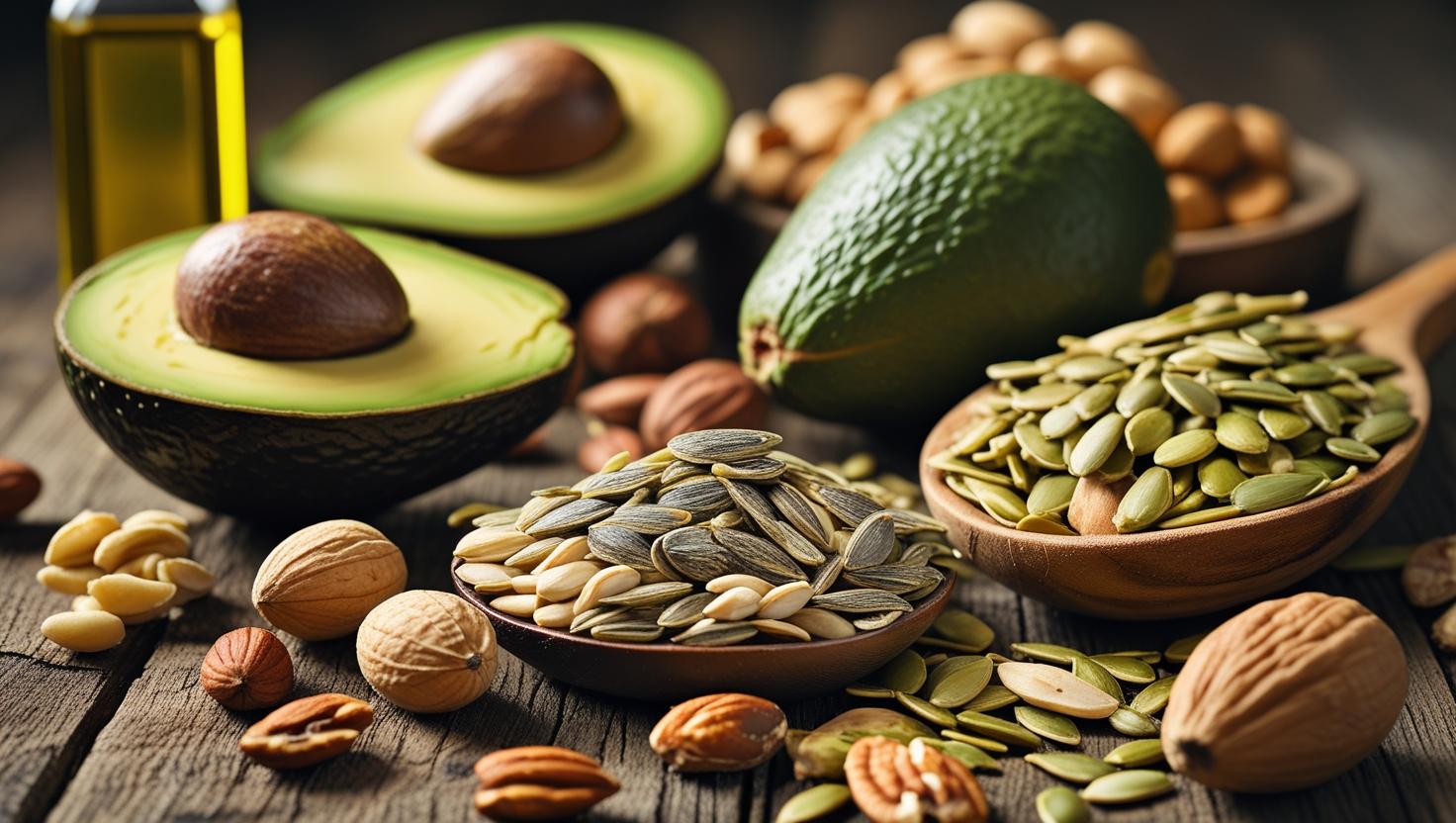Dietary fat has been demonized for decades, scorned as the primary trigger of weight gain and disease. Diets to lose weight often involve cutting fat entirely. But science has now dispelled that myth. We now know that not all fat is created equal, and in fact, some fat is necessary for weight loss, hormone health, energy and long-term well-being.
So, let’s look at why healthy fats aid in weight loss, the different kinds you should eat and how to enjoy them in a balanced, sustainable way.
Why Fat Is Not the Enemy
Fat is one of the three macronutrients your body requires in addition to carbohydrates and protein. It fuels your body, helps it grow cells, cushions your organs and assists in absorbing important nutrients like vitamins A, D, E and K.
So why do fats get a bad rap? Ultimately, this is a question of quality and quantity. Foods rich in trans fats and hydrogenated oils are unhealthy. But natural dietary sources of fat, especially unsaturated, can help you lose weight by allowing you to feel full, nourishing your metabolism, and decreasing calorie intake with reduced cravings.
The bottom line is that the right fats can help us cooperate with, not fight against, our bodies.
Types of Healthy Fats
Before we get into the food sources, it’s useful to know what constitutes healthy fats that help in weight loss:
Monounsaturated Fats (MUFAs): These are available in avocados, olive oil and certain nuts, and help reduce bad cholesterol and improve heart health.
Polyunsaturated Fats (PUFAs): This class of milk contains both omega-3 and omega-6 fatty acids, which are essential fats your body can’t make on its own.
Medium-Chain Triglycerides (MCTs): MCTs are triglycerides (fats) with a medium chain length that are present in certain foods (and commonly touted for their fat-burning ability), such as coconut oil and dairy, and can be rapidly metabolized.
Omega-3 Fatty Acids: Fatty fish, flaxseeds and walnuts contain potent omega-3 fats that help decrease inflammation and promote brain and heart health.
We’ll show you the best healthy fat sources for your weight loss meal plan.
1. Avocados: Creamy, Nutrient-Packed & Satisfying
Avocados are a healthy fat rock star. They’re a rich source of monounsaturated fat, particularly oleic acid, which studies have linked to reduced inflammation and improved heart health. One medium avocado contains about 15 grams of fat, most of it the healthy monounsaturated kind.
But it’s about more than the fat. Avocados also have fiber, potassium, magnesium and a few B vitamins. The fiber helps slow digestion and will keep you full longer, helping you avoid overeating and snacking throughout the day.
How to Enjoy:
- Cut into slices on toast with a little sprinkle of chili flakes
- Added into smoothies for even more creaminess
- Cubed into salads or grain bowls
2. Nuts: Small but Nutrient-Dense
Almonds, walnuts, cashews, and pistachios are healthy sources of fat, protein, fiber, and antioxidants. They aid in weight loss by helping you feel full and preventing you from eating more unhealthy foods.
For instance, a serving of almonds (approximately 23 nuts) delivers:
- 6 grams of protein
- 89 grams of at (mostly monounsaturated), followed by 14 grams of fat
- 3.5 grams of fiber
These nutrients help regulate blood sugar, increase insulin sensitivity and manage appetite.
Portion Tip:
Limit yourself to 1 oz (around a small handful) to control calories while reaping the beneficial nutrients.
3. Seeds: Tiny but Powerful
Chia seeds, flaxseeds, hemp seeds and sunflower seeds are nutritional champions. They contain omega-3 fatty acids, plant-based protein, fiber and important minerals like magnesium and zinc.
Chia seeds, which absorb liquid and swell in your stomach, for example, may keep you feeling full longer. Ground flaxseeds are one of the highest plant sources of a type of omega-3 called alpha-linolenic acid (ALA), which has been found to have an anti-inflammatory effect and contribute to heart health.
How to Use:
- Stir into yogurt or oatmeal
- Blend into smoothies and protein shakes
- Toss into salads or roasted vegetables
4. Olive Oil: Liquid Gold of the Mediterranean Diet
Olive oil, particularly extra virgin olive oil, is a mainstay in healthy diets. It contains heart-healthy monounsaturated fats and potent antioxidants like oleuropein and hydroxytyrosol.
Studies have shown that diets high in olive oil , such as the Mediterranean diet, can contribute to decreased body fat, improved cholesterol and weight management over the long term.
Olive oil is anti-inflammatory and heart- and brain-healthy, virtues many other cooking oils do not have.
Best Uses:
- Drizzle over salads and roasted vegetables
- Work as a base for vinaigrettes and marinades
- Steaming vegetables and lean proteins, and light stir-frying
5. Fatty Fish: A Protein and Omega-3 Powerhouse
Salmon, mackerel, sardines and trout are also great choices for protein and healthy fats from omega-3 fatty acids. Omega-3s help fat burn faster, reduce inflammation and even shrink fat.
Also, fish is high in protein, which is great for building and maintaining muscle (believe me, that’s essential for a quicker metabolism and best fat burning).
Recommended Intake: Eat two servings of fatty fish each week (3 to 4 ounces per serving).
6. Coconut Oil: Quick Energy from MCTs
Coconut oil is all the rage in weight loss diets due to its MCTs. Unlike long-chain fats, MCTs are rapidly absorbed and taken to the liver, where they can slightly raise the number of calories burned.
Some small studies show that MCTs may help with fat loss, particularly in the area around the belly. However, this is not definitive, and results are mixed and require further research.
Use in Moderation:
Coconut oil is still high in saturated fat, so use it sparingly and in moderation, 1–2 tablespoons per day.
7. Dark Chocolate: A Sweet Source of Good Fat
Indeed, yes, even chocolate can have its healthy fats provided it’s dark (70% or higher). Dark chocolate is a good source of monounsaturated fats, antioxidants such as flavonoids, and compounds that lower stress hormones, which can also help prevent you from putting on belly fat.
Enjoy Wisely: Limit to 1–2 squares per serving, and combine with fiber or protein to help keep your blood sugar steady.
How We Can Use Fats to Lose Weight

How do these fats help you lose weight? When it comes to the intake of nanomacronutrients, portion control is one thing that we all must keep in mind. No matter how much a food is consumed, you will get adverse effects if it is not consumed in a controlled portion. Here are science-backed ways to help do that:
- They Keep You Full: Fats digest more slowly than carbs, helping to keep you satisfied after each meal, and keeping you from binging.
- They Balance Blood Sugar: Healthy fats help slow blood sugar absorption into the bloodstream, preventing spikes and dips that can lead to cravings.
- They Support Hormone Health: Hormones that regulate hunger and metabolism, such as leptin and insulin, rely on fat to work properly.
- They Fuel Your Workouts: Fats are a slow-burning energy source well-suited to continuous cardio and long-distance activities.
- They Reduce Inflammation: Chronic inflammation can also make it tougher to lose weight. Anti-inflammatory fats, such as omega-3s, allow your body to perform optimally.
Smart Tips for Adding Healthy Fats
- Choose whole food sources over processed oils or snacks.
- Pair fats with fiber and protein for balanced, satisfying meals.
- Watch portion sizes — fats are calorie-dense, so moderation matters.
- Avoid trans fats and hydrogenated oils found in processed and fast foods.
Final Thoughts
Fat doesn’t make you fat; the right kinds of fat can help. But hear this: Healthy fats are your “ace in the pack” regarding weight loss. They’re hunger-squashing, hormone-balancing, inflammation-reducing, and metabolism-supporting powerhouses.
Rather than fear it, target quality instead: Stick with whole, natural and nutrient-dense sources such as avocados, nuts and seeds, olive oil, fatty fish and so forth. Pair them with whole grains, lean proteins, and lots of veggies for a well-rounded strategy that will keep the weight off for good, no deprivation necessary.
So yes, add that avocado to your salad or drizzle olive oil over your roasted veggies. Your body (and taste buds) will be grateful.
